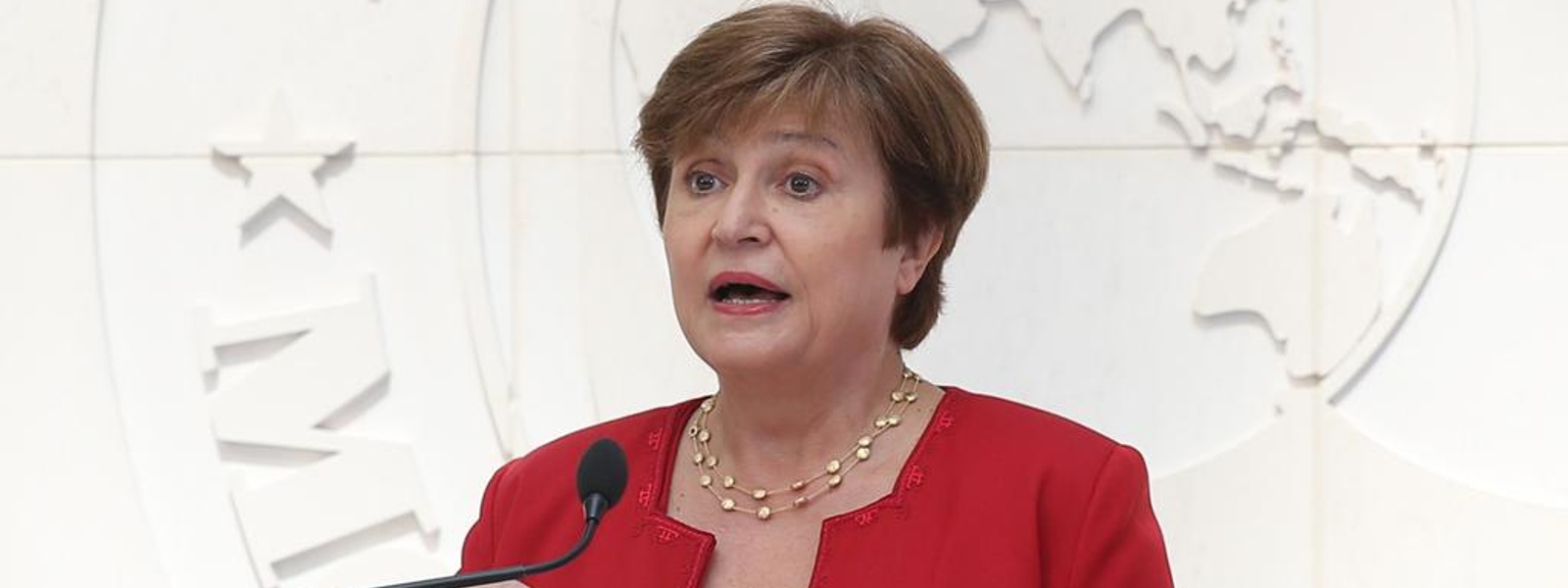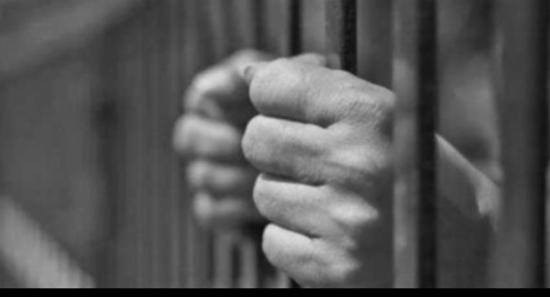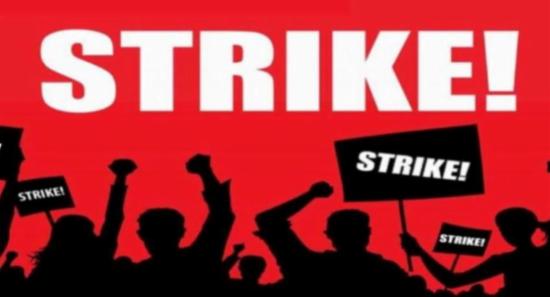.webp)

Common Framework is delivering, but slowly - IMF Chief
Marrakesh (News 1st); The Common Framework is starting to deliver, even if still too slowly said Kristalina Georgieva, the Managing Director of the International Monetary Fund ahead of the IMF and World Bank Annual Meetings in Morocco.
"Together with the Indian G20 presidency and World Bank, we have set up the Global Sovereign Debt Roundtable, which brings together public and private creditors and debtor countries," she said last week.
Noting the fact that Sri Lanka among other nations took several months to move from a staff-level agreement with the IMF to secure creditor assurances needed for approval for an IMF-supported bailout program, she stressed that faster progress is necessary, and "We're moving in the right direction."
She said more needs to be done to support vulnerable emerging and developing countries. "This is why we urgently need to strengthen the global financial safety net."
Common Framework:
The Common Framework is intended to deal with insolvency and protracted liquidity problems, along with the implementation of an IMF-supported reform program.
G20 official creditors—both traditional “Paris Club” creditors, such as France and the United States, and new creditors, such as China and India, overtook the Paris Club as lenders in the last decade—agreed to coordinate to provide debt relief consistent with the debtor’s capacity to pay and maintain essential spending needs.
The Common Framework requires private creditors to participate on comparable terms to overcome collective action challenges and ensure fair burden sharing.
Sri Lanka:
Sri Lanka is struggling with its worst financial crisis since its independence from Britain in 1948 after the country's foreign exchange reserves hit record lows and triggered its first foreign debt default last year.
The economic collapse triggered widespread protests and forced former president Gotabaya Rajapaksa to flee the country last July.
Pledging to put its mammoth debt burden on a sustainable track, Sri Lanka locked down a $2.9 billion bailout from the International Monetary Fund (IMF) in March, which was due for a first review in September.
The Sri Lankan government is also in the process of restructuring its foreign debt, which totals approximately US$51 billion. The government has already begun talks with foreign creditors, including the Paris Club and countries such as India and China.
The government's goal is to reduce its foreign debt by US$17 billion through restructuring. However, it is unclear how long this process will take or what the final terms of the restructuring will be.
Challenges
The Sri Lankan government faces a number of challenges in implementing its debt restructuring programs. One challenge is getting all of its creditors to agree to the terms of the restructuring. Another challenge is the potential impact of the restructuring on the domestic economy.
The government has stated that it is committed to protecting the interests of all creditors and to minimizing the impact of the restructuring on the domestic economy. However, it is unclear how it will be able to achieve both of these goals.
Latest Developments:
As of October 9, 2023, the Sri Lankan government is still in the process of implementing its debt restructuring programs. It is expected to take several months to complete the restructuring process.
In the meantime, the government is continuing to implement its IMF-backed reform program, which aims to stabilize the economy and pave the way for sustainable growth.
The success of the debt restructuring programs is crucial to Sri Lanka's economic recovery. If the government is able to successfully restructure its debt, it will be able to reduce its debt burden and free up resources to invest in essential services and infrastructure.
Other Articles
Featured News





.png )











.gif)








.webp)






